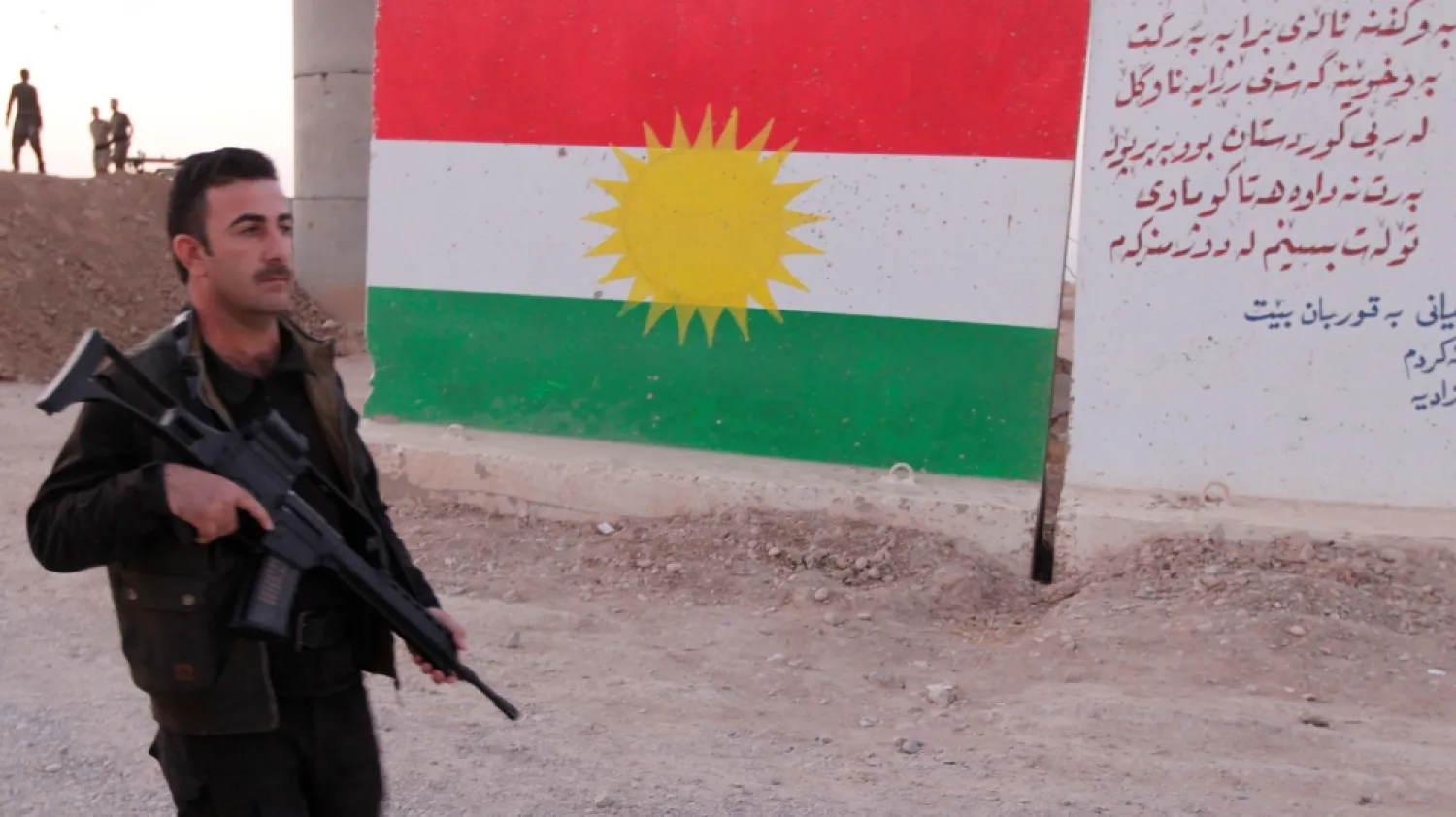Arab forces in Kirkuk have expressed their rejection to the return of Kurdish Peshmerga and Asayish forces to the oil-rich province and other disputes regions.
They called on the Kurdish and Iraqi forces that were victorious in the May parliamentary elections against dragging Kikruk into their political negotiations that are aimed at forming the largest bloc at the legislature.
Spokesman of the Arab Council in Kirkuk Hatem al-Taei stressed that it opposes the return of the Peshmerga.
The council represents the vast majority of the Arab political and social forces in the province.
Taei told Asharq Al-Awsat that the legal explanation of the “disputed regions” means that only federal forces are allowed to deploy there.
These forces bring together all components of society without exception, he stressed.
“Our problem, as Arabs in Kirkuk, does not lie with the Kurds or Kurdish political forces, but with the powers that control the security and military forces that have seized Kirkuk,” he added.
“We suffered under the rule of these forces throughout the duration of the war against ISIS,” he revealed. “They committed many many violations against our regions and their Arab residents.”
He accused the Kurdish forces of arresting the youth and destroying 116 Arab villages in Kirkuk without any justified reason simply because they “lie within the borders of regions the forces wanted to claim as their own through bloodshed.”
“It would be difficult to predict the Arab reaction in Kirkuk should the return of the Kurdish forces be allowed there. The Arabs are very bitter about the past experience,” he warned.
The Turkmen forces in Kirkuk also appeared reluctant to accept the return of the Peshmerga.
Spokesman for the Turkmen Decision Party Mahdi Bozok told Asharq Al-Awsat that the Turkmen will accept the Kurdish forces’ return only if they are controlled by the federal authorities, meaning they should receive direct orders from the Iraqi government.
He called for reconciliation between all segments of Kirkuk society and that the Turkmen be included in negotiations over the fate of the province.
“There can be no stability in Kirkuk without the Turkmen,” he declared.
The management of the province must take place between all forces that are present there, he stressed.
The Peshmerge are part of the Iraqi defense system and the constitution stipulates that such a system is exclusively subject to the federal authorities, he went on to say.
On the other side of the divide, Kurdish parties voiced their rejection of the Arab and Turkmen stances on the Peshmerga, dismissing them as political statements aimed at achieving political gains at the expense of the province.
None of their claims have constitutional or legal bases, they added.
Leading member of the Patriotic Union of Kurdistan Khaled Shwani accused the Arab and Turkmen powers of putting their interests above those of the residents of Kirkuk.
He cited the Iraqi constitution that stipulates that the security of regions that are disputed between Baghdad and Erbil be jointly controlled by federal and Peshmerga forces.
The constitution says that the federal forces must include all members of society, he stated.
The current forces deployed in Kirkuk only represent one segment of the local society, which is why the Peshmerga must take part in security duties there, he added.









